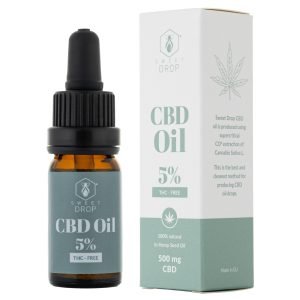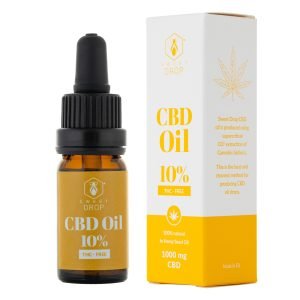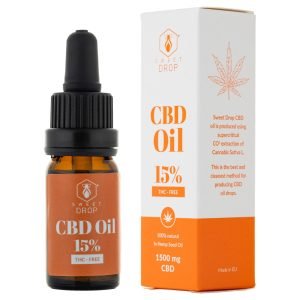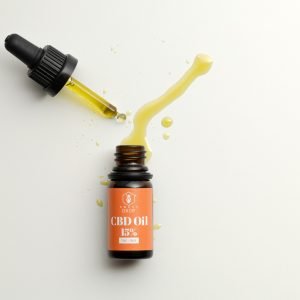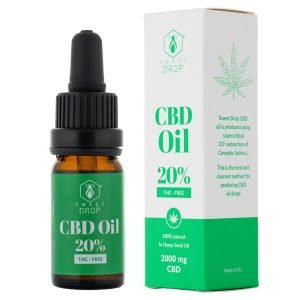The interest in utilizing cannabis and its extracts, including CBD oil derived from hemp containing cannabidiol, for therapeutic purposes is on the rise. Although there is a belief that cannabinoids could be effective for various diseases and syndromes, there is a scarcity of substantial data supporting the use of unrefined materials such as CBD oil, cannabis extracts, or cannabis itself for therapeutic applications, therefore it is a potential barrier for physicians to understand and recommend these treatments to patients. This article will focus on how cannabidiol is used and what impact does it have on the treatment of various diseases, as well as psychological issues.
In most varieties of Cannabis, THC and CBD are the predominant cannabinoids, although the plant produces over 100 different cannabinoids. These cannabinoids have diverse biological properties.
Cannabinoids encompass endocannabinoids, phytocannabinoids (produced by Cannabis plants), and synthetic cannabinoids (created in laboratories to interact with cannabinoid receptors). Among phytocannabinoids, the most abundant and studied are Δ9-tetrahydrocannabinol (Δ9-THC) and cannabidiol (CBD). Many cannabinoids, like Δ9-THC, exert their effects by interacting with the body’s endocannabinoid system. However, some, such as CBD do not strongly bind to these endogenous receptors and act through other pathways outside the endocannabinoid system.
Despite the acceptance of whole-plant cannabis consumption for medical purposes by several governments, only a limited number of cannabinoid medications have undergone meticulous testing for safety and effectiveness, leading to approval for use by regulatory bodies.
In 2018, CBD marketed as Epidiolex gained FDA approval for treating specific severe seizure disorders in children, followed by EMA approval in 2019. Epidiolex is a 98% pure plant-derived oral CBD solution that has undergone extensive toxicology studies. It is approved to treat seizures associated with Lennox-Gastaut syndrome or Dravet syndrome in pediatric patients. This highly purified CBD preparation may closely resemble CBD oil in exploring potential safety and therapeutic benefits. Common side effects include liver toxicity, decreased appetite, diarrhea, drowsiness, and fatigue.
As for CBD itself, studies have demonstrated its effectiveness in reducing seizures, its anti-inflammatory properties, and its potential to alleviate anxiety.
One of the primary reasons patients use cannabis is to manage anxiety, particularly with products containing high levels of CBD. In a double-blind, randomized controlled trial involving 24 patients with social anxiety disorder, it was observed that administering 600 mg of CBD 1.5 hours before public speaking significantly decreased anxiety compared to healthy individuals in the control group.
Another frequently cited reason for using CBD oil is to aid with sleep. However, there is currently a lack of clinical data in humans supporting the use of CBD specifically for improving sleep. Survey results from individuals using CBD for sleep have shown considerable variability, likely due to the inconsistent content and quality of CBD products available on the market.
Two recent open-label studies with a similar design, where patients with treatment-resistant epilepsy received oral CBD as adjunctive therapy for three months alongside their existing anti-epileptic medications, yielded comparable outcomes. These studies showed a responder rate of around 50% and a reduction in weekly seizure frequency of just under 50%. These findings were consistent across patients despite notable variability among individuals within each study, with different underlying causes of seizures, such as Dravet syndrome and tuberous sclerosis complex. Notably, cannabidiol appeared to have a synergistic effect with clobazam (used to help control convulsions that occur with Lennox-Gastaut syndrome), and patients with baseline cognitive and behavioral issues experienced improvements in these areas that were independent of seizure reduction.
In a study focusing on Parkinson’s disease management, a double-blind trial examined the impact of pure non-psychoactive CBD and revealed significant enhancement in activities of daily living in both intervention groups compared to the placebo.
Cannabinoid therapy for lung cancer remains at the preclinical stage; however, data from these studies indicate a potential proapoptotic effect of CBD on cells from primary lung tumors. Increased levels of AEA cannabinoid, achieved by inhibiting FAAH (an enzyme in endocannabinoid metabolism), have shown inhibition of EFGR (growth factor receptor) signaling and induction of apoptosis (cell death). In other words, it helps alleviate the negative effects of chemotherapy, which contributes to better mood and influences the feeling of pleasure while also having an impact on an inhibition of cancer cells.
CBD has been found to be effective for anxiety, and some users claim it contributes to better sleep. CBD has also demonstrated effectiveness in treating seizure disorders in children. Despite promising pharmacological indications, the current lack of clinical trial data prevents definitive conclusions. Significant obstacles to researching cannabis, its extracts, and CBD oil include stringent federal regulations governing high-THC cannabis in the USA and the limited interest from major pharmaceutical companies in funding trials that do not yield patent-protected medications.


